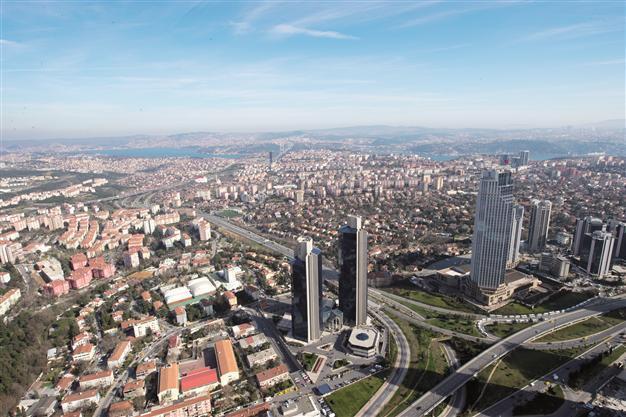Turkish government mulls share from ‘unearned speculation’
Hacer Boyacıoğlu ANKARA / Hürriyet

Development Minister Cevdet Yılmaz said the government should receive a share from ‘unearned speculation’ gains, which are usually earned thanks to local or central government policy or plan changes.
The Turkish government is mulling whether to collect tax over the sale of valuable urban properties with the aim of taking a share from the gains made following land speculation, the development minister has said.
“The Environment and Urban Planning Ministry is working on a study to increase the share of urban rents with the state more,” Turkish Development Minister Cevdet Yılmaz told daily Hürriyet.
He said the study would be designated to transfer some of the income that is earned from the appreciation of a property thanks to changes in the land settlement plan or public services to the state.
“For example if you have a house and its value has jumped to 200,000 Turkish Liras from 100,000 liras, a part of this increased value should be shared with the state within the framework of transparent rules,” he said. “This would be a new source for the state and a fair regulation.”
According to the minister, the resource to be yielded from urban rents can be transferred to the central government budget or local governments.
He said this tax model is commonly implemented in advanced economies to create a financing resource for the public sector, adding that it was important for fostering a sense of justice.
Investment ‘crucial’Yılmaz also responded to criticisms that Turkey was neglecting necessary reforms regarding the economic structure, saying the country had prepared a five-year development plan.
However, he also admitted the country needs a “second leap” to continue progress.
“We had a leap, but the target is now to overcome $13,000-national income per capita threshold and join the ranks of the high-income countries,” he said. “We need a second lead. If we are overcome by languor, we won’t be able to do that.”
In the short term, the top priority for Turkey is to rehabilitate the investment environment and ease investment procedures, he said.
Further elaborating on a roadmap he sees as essential for emerging from the middle-income trap, Yılmaz said the main points were better urbanization, higher-quality housing, more importance to urban aesthetics, better methods of production, a fairer justice system and better international cooperation.
